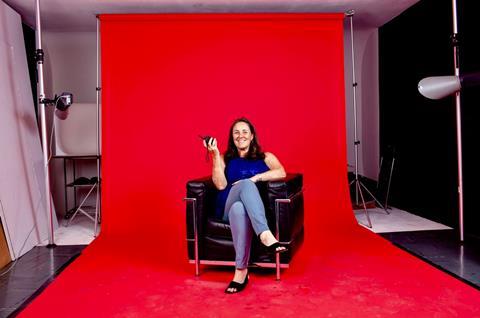
Esther van Messel, CEO of Swiss documentary specialist First Hand Films, has had a colourful and varied career. She was born in Vienna and grew up in the Netherlands, the US, and mostly in Switzerland. She emigrated to Israel, aged 19, where she lived for seven years. “I am Jewish and was looking for a home,” she says now.
After driving a tractor on a kibbutz for a year or so she studied film at the University of Tel Aviv in the renowned class of 1986, alongside Waltz With Bashir director Ari Folman and In Treatment creator Hagi Levi.
On graduating, the multilingual van Messel started out as a secretary in the local office of Warner Bros, working her way up to general manager. Frustrated by the lack of creative opportunities, she headed back to Switzerland where she worked for a production company for five years. Aware of the “glass ceiling” restricting her opportunities (“there were two guys owning the company and I couldn’t get anywhere”) she set up First Hand Films in 1998 in Zurich and in 1999 in Berlin. She has been selling non-fiction ever since. “Documentaries are quicker, dirtier and more honest,” she says.
Van Messel is the producer of Hanka Nobis’ Polish Prayers, which screened at International Documentary Festival Amsterdam (IDFA) this month. She is also financing and producing Nobis’ second feature, Songs Of Sisterhood.
What’s the first thing you do when you arrive in your office each day?
Enjoy the space. As I’m an early riser and often the first in the office, it’s up to me to turn on the coffee machine. I’ll also check our Schefflera, the office tree, for new leaves.
Do you have a drink?
I’m a huge fan of bubbles and always keep a bottle of Champagne in the office fridge for special occasions. Sometimes, the special occasion is that you’ve got a bottle of Champagne in the fridge. Yes, of course I drink coffee at the office but also yes, we always have bubbles in the fridge. That’s a basic!
Who do you look up to in the industry?
My role models are all the tough and tender wise women before me who encouraged me, supported me, and generally lead by their example. Beki Probst was one of them, owning movie theatres in Switzerland, from a complicated, colourful background, running the European Film Market and generally having her fingers in so many pies.. She is always adorned like a Christmas tree, full of gold. I just admire that tiny woman exuding all that power.
Who helped you most when you were first starting out?
All those who said there was no need for a sales company. I’m kidding! But that did fuel my ambition. Seriously, Christian Davi was the talented writer, director and producer of Hugo Film in Zurich who died much too early from cancer. Franz Grabner was the inspiring commissioning editor at ORF who shaped the broadcaster’s profile in all things religious and political. He, too, died young from cancer. They both trusted and supported me with their work and their confidence.
What was your favourite film growing up?
Mary Poppins and the Jungle Book as a kid. Later, Grease, and then Hair.
What is the biggest challenge facing the documentary business?
The word ‘documentary’. We should just tell our stories, rom coms, films noirs, comedies. We lost our budgets and our slots to reality shows, and we need to beef it up, and make documentaries great again – and call them just films.
What book are you reading?
Macie Rendon’s thrillers with the main protagonist Cash Blackbear are my favorites right now. Also reading or rather leafing through Amanda Gorman’s ‘The Hill We Climb’.
What do you do to relax?
I love to travel and love to sleep, read, bicycle and I do yoga every morning.
Who would play you in the story of your life and who would direct?
I’ve always like the roles played by Winona Ryder so maybe she would want to be me? And the director would need to be Tilda Swinton.















![[L-R]: Amanda Villavieja, Laia Casanovas, Yasmina Praderas](https://d1nslcd7m2225b.cloudfront.net/Pictures/274x183/6/4/1/1471641_pxl_20251224_103354743_618426_crop.jpg)









No comments yet